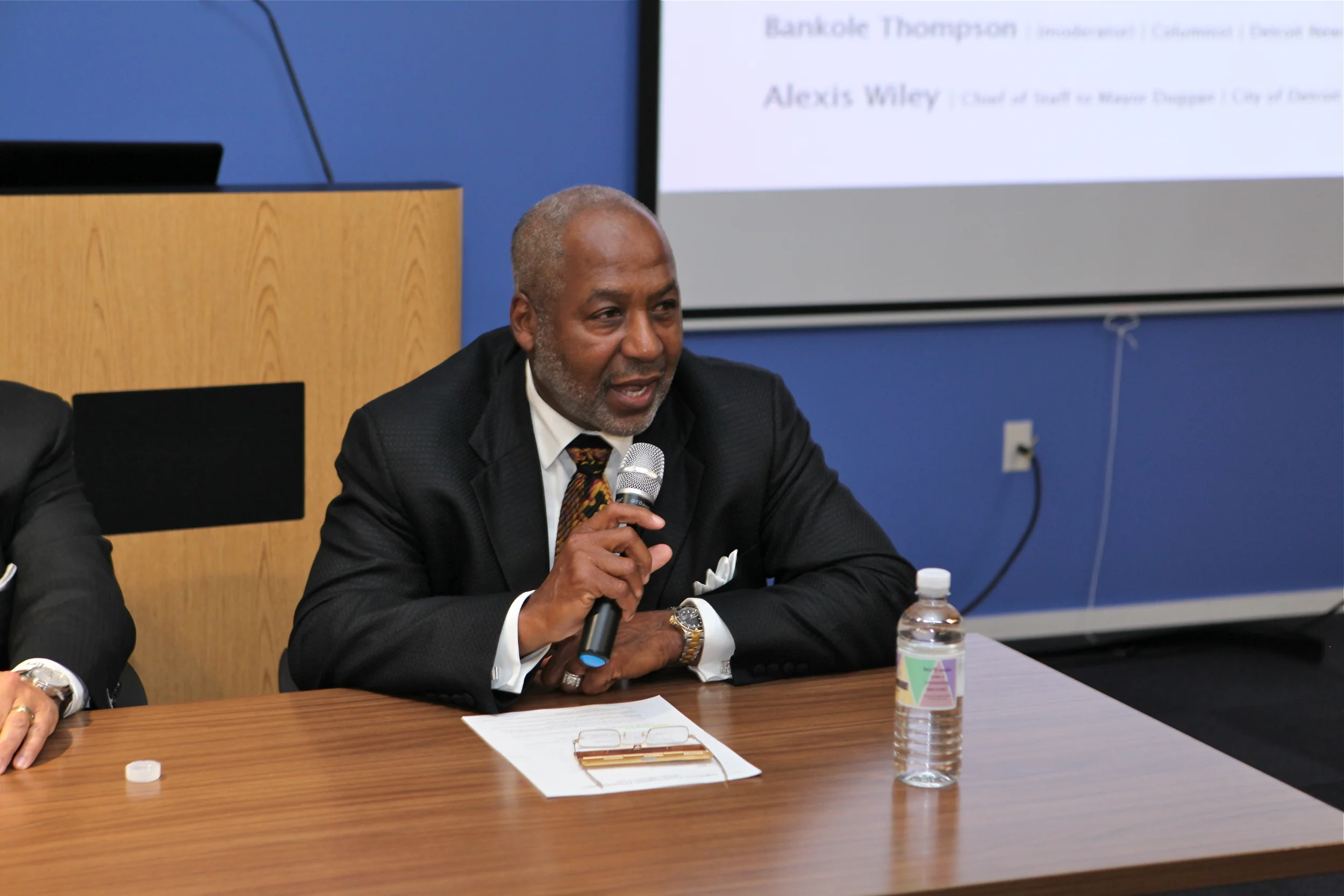In a hiring role at an accounting firm in Chicago, Heather Paquette often found that men asked for more money than women when coming into a new job. And that struck her on more than just a gender equality level.
“It could be a million dollars over the course of career if you don’t ask for more out of the gate,” she said. “It doesn’t hurt to know what the market value is for your skills.”
Heather Paquette
Paquette (@heatherpaquette), now Managing Partner of KPMG’s Detroit office, was one of four panelists to speak on promoting diversity and inclusion in the workplace at DYP’s Lean In Together discussion at TechTown on Thursday, September 24th. Organized by DYP’s Taylor Nelson and Kayla Roney Smith and inspired by Facebook COO Sheryl Sandberg's book Lean In, about which DYP held a discussion earlier in the month, the event also featured Marvin Beatty, VP of Public Relations for Greektown Casino + Hotel and self-described “hard-working brother from the neighborhood;”Leon LaBrecque, CEO of LPJR Wealth Management and jokingly self-described “token affluent white guy on the panel;” and Alexis Wiley, former WJBK reporter and now Chief of Staff to Detroit Mayor Mike Duggan.
During a wide-ranging discussion on gender, Paquette suggested that men are more likely to seek out another job offer for leverage in their current position, while women would take that job offer because “it’s an emotional thing … I’m leaving because I hate all of you.” Men negotiate on potential, women on track record, Paquette said. But that tactic would negate a critical bargaining chip, she said.
“It’s OK to understand what your options are, because it gives you tremendous confidence,” she said. “Men will talk to other people to better their position. Women are loyal, and they don’t want to have conversations with people unless they’re really leaving. That’s not disloyal; it’s understanding your value.”
Beatty said women can regain power by “speaking with confidence of their ability and not accepting simplistic answers for why they’re not moving up in the chain.” Paquette said negotiating power comes from being able to prove your own value. “That was a great offer,” she says she’s told people, “but let me tell you why I’m worth more.”
MArvin beatty
“And then if you get the money,” she said, “you have to demonstrate while you’re asking, and through the ask, that you earned it.”
Much of the advice given by the panel wasn’t specific to gender. Wiley talked about her transition from on-air talent to city spokesperson and then second in command for the city. She said that opportunity arose partly because she worked to “expand in a way where you become the brand.” While the chance to work for Duggan wasn’t a direct step up in the field she had been working in, “you have to weave in humility - you have to think, could I potentially take less money here, but the value of being here is something I can leverage to get to my next spot?” she said. “I think sometimes people can limit themselves by being too arrogant and too shortsighted in their negotiations.”
When asked by an audience member if it’s realistic to tell women to negotiate in a more traditionally masculine way, LaBrecque noted that we all have cognitive biases, or unconscious judgments that our brains make based on our experiences. The key is to try and acknowledge and address them as openly as possible. He said he uses a 17-page checklist for fighting cognitive biases in business.
“If you continue to upgrade your talent, your value is going up,” Beatty said. “If you pigeonhole yourself to a place where this is as far as this job goes, you have really put yourself in a box. The only way out of that is education or a skillset that’s in demand. Be with people who make you stronger, who sharpen your skills, who make you think about things you don’t usually think about. That moves you to another level. It’s moving away from the easy stuff and stepping into the stuff where you’re least comfortable.”
Tom Keller is a professional writer born and raised in Metro Detroit. His online home is http://kellerinstinct.com.



